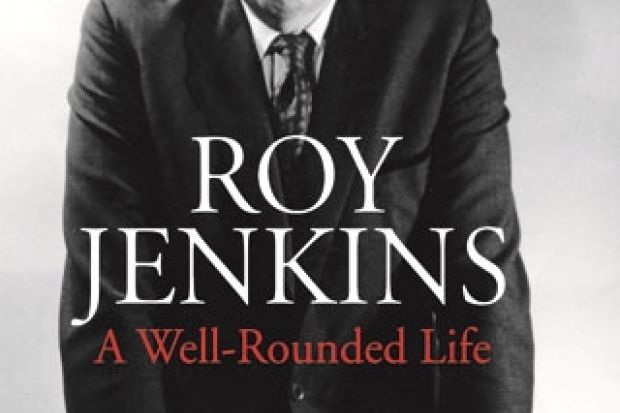Sir David Bell, vice-chancellor, University of Reading, is reading John Campbell’s Roy Jenkins: A Well-Rounded Life (Vintage, 2014). “Caricatured as an indolent bon viveur, Jenkins accomplished more than many a prime minister. Campbell highlights his liberalising instincts as home secretary, his role in breaking the mould of UK politics and his contribution to European integration. Yet he never became PM. Lacking the killer instinct, he enjoyed too much the ‘roundedness’ of life, not least when it came to his lovers.”

Hetta Elizabeth Howes, PhD candidate in medieval literature, Queen Mary University of London, is reading Ruth Ahnert’s The Rise of Prison Literature in the Sixteenth Century (Cambridge University Press, 2013). “The first major study of its kind, this fascinating text explores the impact of the words of prison communities – from graffiti and marginalia to letters and martyrologies – on the outside world, arguing for the prison as an emerging literary sphere. Ahnert handles her topic with sensitivity and engages with philosophical questions, such as: what makes prisoners write?”

David Milne, senior lecturer in political history, University of East Anglia, is reading Brooke L. Blower’s Becoming Americans in Paris: Transatlantic Politics and Culture Between the World Wars (Oxford University Press, 2013). “In this evocative, beautifully written, impeccably researched work, Blower joins a handful of historians who have authoritatively demonstrated the virtues of transnational history. She shows that Paris in the 1920s and 1930s was not merely an idyllic playground in which Gertrude Stein, Langston Hughes and Ernest Hemingway plied their creative trade, but also a politically volatile, often violent city that was not always hospitable to its US visitors.”

Stephen Senn, head of the Competence Center for Methodology and Statistics, Centre de Recherche Public de la Santé, Luxembourg, is reading Erlend Loe’s Doppler (Head of Zeus, 2012). “Serving up a sly mix of pessimism, deadpan humour and smoked elk meat, Loe repeats the trick he managed so well in Naïve. Super of getting the reader inside his protagonist’s head. This time his narrator is not recovering from depression but discovering the joys of misanthropy, rough camping and friendship with an elk called Bongo. I roared with laughter.”

Peter J. Smith, reader in Renaissance literature, Nottingham Trent University, has just finished John Williams’ Stoner: A Novel (Vintage, 2012). “This 1965 novel contemplates the constraints – social, emotional, sexual, familial, economic, academic – (self)imposed on an unambitious but dedicated assistant professor of English literature. Its portraits of vindictive senior academics, alcoholic relatives, idealistic students and ardent lovers are diverse, and the novel charts the struggles of the often bewildered hero to come to terms with the ways they shape his life. Beautifully plain, eerily peaceful, it is a profoundly moving work about ageing and the disappointments of experience. Quite brilliant.”
Register to continue
Why register?
- Registration is free and only takes a moment
- Once registered, you can read 3 articles a month
- Sign up for our newsletter
Subscribe
Or subscribe for unlimited access to:
- Unlimited access to news, views, insights & reviews
- Digital editions
- Digital access to THE’s university and college rankings analysis
Already registered or a current subscriber? Login

